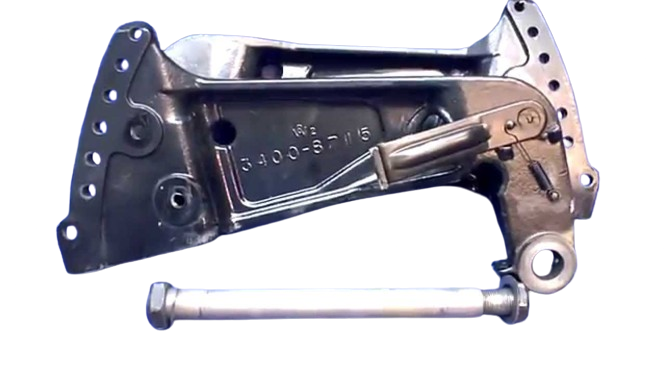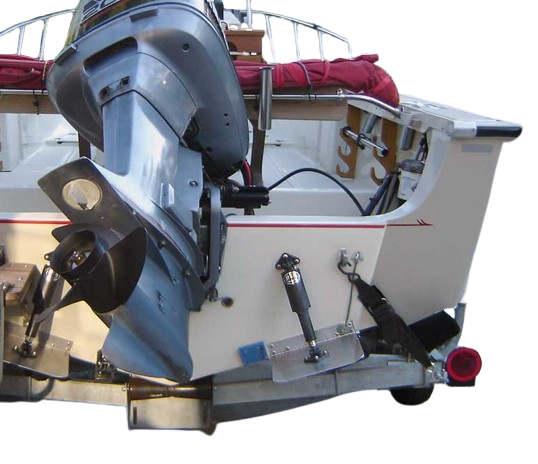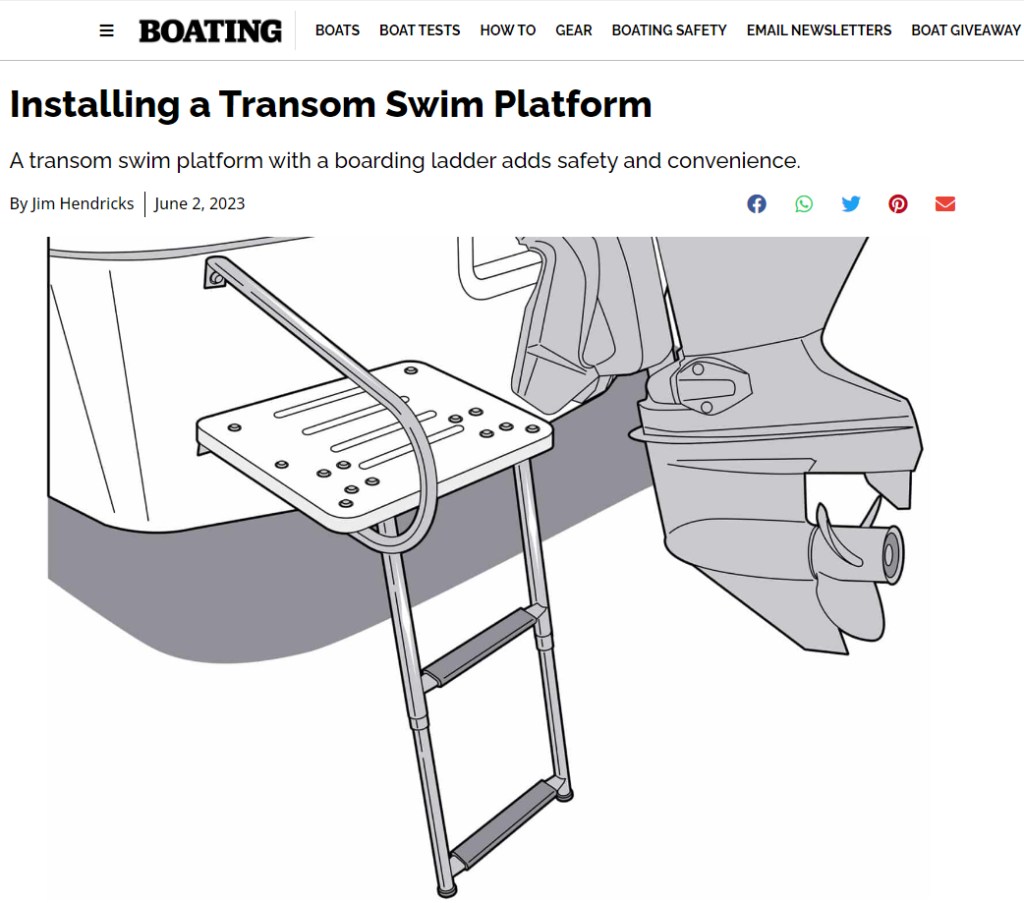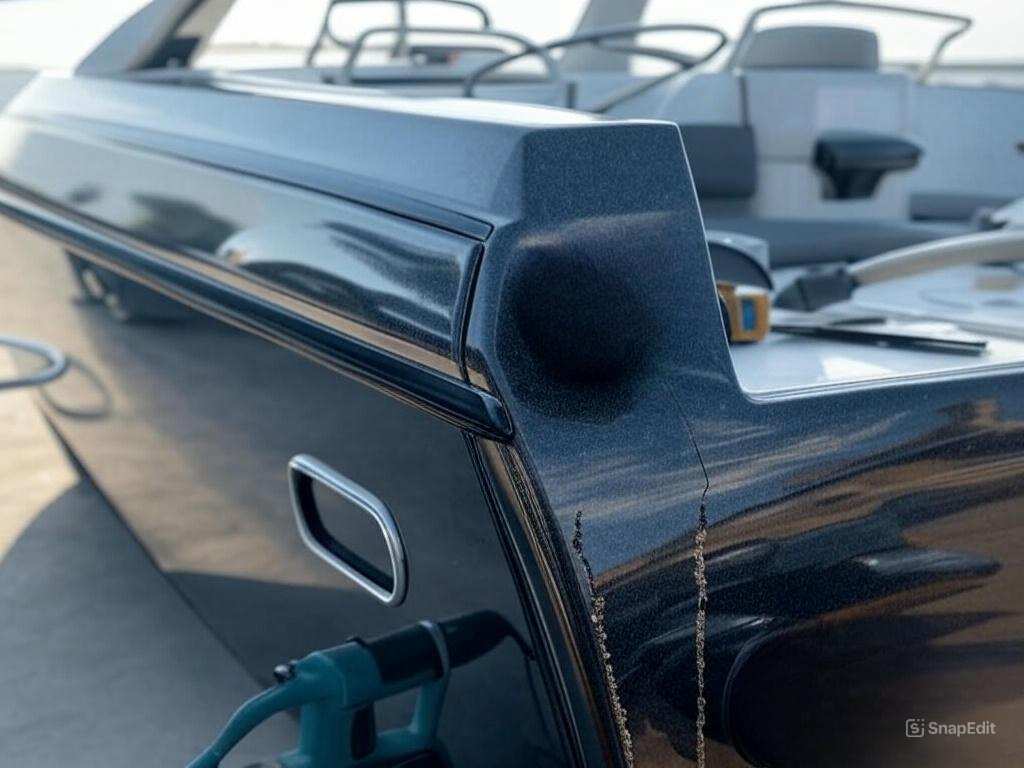Quick Answer
Transom repair is a critical aspect of maintaining the structural integrity and safety of your boat. The cost and complexity of transom repairs can vary widely depending on the material of your boat (aluminum, fiberglass, or wood) and the extent of the damage. Proper assessment, repair techniques, and preventative maintenance are key to ensuring a successful transom repair.
[BUTTON: Get free estimates for Transom Repair now]
Introduction
As a boat owner, few things are more frustrating than discovering damage to your vessel’s transom – the flat surface at the stern where the outboard motor is mounted. Whether it’s a hairline crack, a rotting wooden core, or a catastrophic failure, transom issues can quickly escalate and compromise the safety and performance of your boat. This guide will equip you with the knowledge and skills to tackle transom troubles head-on, no matter the material your boat is made of.
Lower Unit Repair Cost: What to Expect for Repairs and Replacements
4 Stroke Outboard Maintenance: A Visual Guide

Frequently Asked Questions
1. What causes transom damage?
Some of the most common causes of transom damage include:
- Impact damage from docking or collisions
- Stress fractures from improper motor mounting or excessive weight
- Water intrusion and rot (especially in wooden transoms)
- Electrolytic corrosion (in aluminum transoms)
- UV exposure and weathering
[CATALOG_LINK: Compare Boat Repair Professionals for Transom Troubleshooting (Boat Repair and Maintenance)]
2. How do I assess the extent of transom damage?
To assess the extent of transom damage, follow these steps:
- Visually inspect the transom for cracks, delamination, or signs of rot
- Tap test the transom with a plastic or wooden mallet, listening for dull or hollow sounds
- Use a moisture meter (for wooden transoms) to measure moisture content

3. What are the different transom repair methods?
The repair method will depend on the material of your boat’s transom:
- Fiberglass transom repair: Clean, sand, apply fiberglass repair kit or epoxy filler, and reinforce with fiberglass cloth or mat
- Aluminum transom repair: Clean, sand, apply marine-grade epoxy or aluminum-based filler, and reinforce with aluminum backing plates or rivets
- Wooden transom repair: Clean, dry, apply wood filler or epoxy wood repair compound, and reinforce with wood splints or fiberglass cloth
4. When is a transom replacement necessary?
A transom replacement may be necessary in cases of severe damage or rot. Signs that a replacement is needed include:
- Extensive cracks or delamination
- Significant water intrusion or rot
- Compromised structural integrity

5. How can I prevent future transom damage?
To prevent future transom damage, implement these preventative maintenance measures:
- Apply marine-grade sealant around the transom and motor mounts
- Coat the transom with a waterproof paint or epoxy coating
- Apply a sacrificial anode or zinc coating to prevent electrolytic corrosion (for aluminum transoms)
- Regularly inspect the transom for any signs of damage or wear
Money-Saving Tips
- Perform Regular Inspections: Catching transom issues early can prevent more costly repairs down the line.
- Consider DIY Repairs: For minor repairs, consider tackling the project yourself if you have the necessary skills and tools.
- Shop Around for Parts and Services: Compare prices from different suppliers and repair providers to find the best value.
- Use Quality Materials: Investing in high-quality materials can save you money in the long run by reducing the frequency of repairs.
- Stay Informed: Keep up with the latest maintenance tips and best practices for your boat’s transom.
[BUTTON: Find Transom Repair Services near you]
Additional Resources
- Outboard Service Cost: What to Expect and How to Save
- Outboard Service Near Me: Understanding Costs and Maintenance
- Inboard Engine Rebuild Cost: Factors and Considerations

Conclusion
Mastering transom repairs is an essential skill for any boat owner, ensuring the safety and longevity of your vessel. By understanding the causes of transom damage, assessing the extent of the issue, and implementing proper repair techniques, you can tackle transom troubles head-on. Remember, preventative maintenance is key to avoiding future transom issues and enjoying many more years of smooth sailing.
[BUTTON: Get free quotes from Transom Repair Professionals now]

